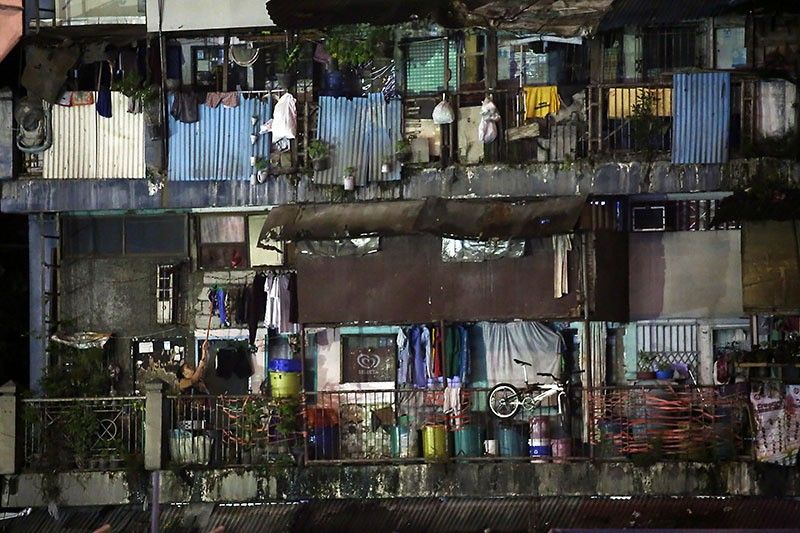'Tiny bubbles' policy still in force in stricter Metro Manila MECQ

MANILA, Philippines — The so-called "tiny bubbles" policy hoisted and maintained by the Philippine National Police is still in force despite the relaxed rules of the Modified Enhanced Community Quarantine, the national police reminded people in Metro Manila.
Metro Manila is under MECQ until the end of August, along with the provinces of Laguna and Bataan. However, the PNP said, each of the 17 local government units in the National Capital Region will continue to have border control points manned by cops.
Police Gen. Guillermo Eleazar, PNP chief, reminded Metro Manila residents to stay aware of the new rules amid the shift to the lighter quarantine status.
"'Small bubbles' and 'tiny bubbles' in Metro Manila are still going to be there... Checkpoints are also still up at intercities and boundaries. If you buy food and medicine, please do so within your cities or municipalities. Do not cross borders anymore," he said in Filipino in an interview aired over Dobol B TV.
READ: Is deploying cops really a 'tried and tested' pandemic response?
Bubbles? What are those?
The policy was first implemented ahead of the Enhanced Community Quarantine on August 6 to regulate movement during the enhanced community quarantine.
The idea was simple on paper: crossing between cities would be restricted, as motorists and travellers would have to show documents proving they are 'authorized persons outside residence' or APORs at the checkpoints bordering localities.
Each bubble would also be governed by the ordinances implemented by their respective local government units.
According to Eleazar, the PNP would not implement any significant changes in the restrictions under ECQ.
The curfew hours in Metro Manila are still from 8 p.m. to 4 a.m.
FROM INTERAKSYON: Tiny bubbles: PNP chief’s NCR ‘policy’ births memes, quips and Nora Aunor references
Consumers limited to cities of residence
Despite having the same name, this iteration of MECQ would be significantly stricter than the last, Eleazar said. He said the added restrictions are to address the spread of the more infectious Delta variant.
For instance, the police chief said, only one Consumer-APOR will be allowed to go out per household and nobody will be allowed to cross borders to avail of the goods and services of the permitted industries and establishments.
Consumer-APORs, in the context of ECQ, were people with quarantine passes who were allowed to go out for essential acitivites. In contrast, 'Workforce APORs' are people allowed to leave home to go to work.
"The PNP will not allow Consumer-APOR to cross borders just to avail of the goods and services of the permitted industries and businesses that are allowed to operate under the MECQ. Instead, they should do so within their respective localities or cities," Eleazar also said in a statement.
"If, before, there was al fresco dining, or outdoor dining services, at MECQ now that is not allowed and if before there was a religious gathering with the venue capacity up to 10%, now it is not allowed. Online services are our religious activities under today’s MECQ."
So far, Eleazar said, only medical appointments, going out for work, and availing of other emergency services in hospitals will be reason for consumers to cross borders.
According to Metro Manila Development Authority chair Benhur Abalos at a town hall earlier Monday, exactly 3,641 granular lockdowns have been tallied in Metro Manila. Granular lockdowns cover smaller areas, often specific houses, within a locality.
To date, health authorities have recorded 1.84 million coronavirus infections in the country after tallying the third-highest daily increase so far with 16,044 new cases on Sunday.
- Latest
- Trending


































